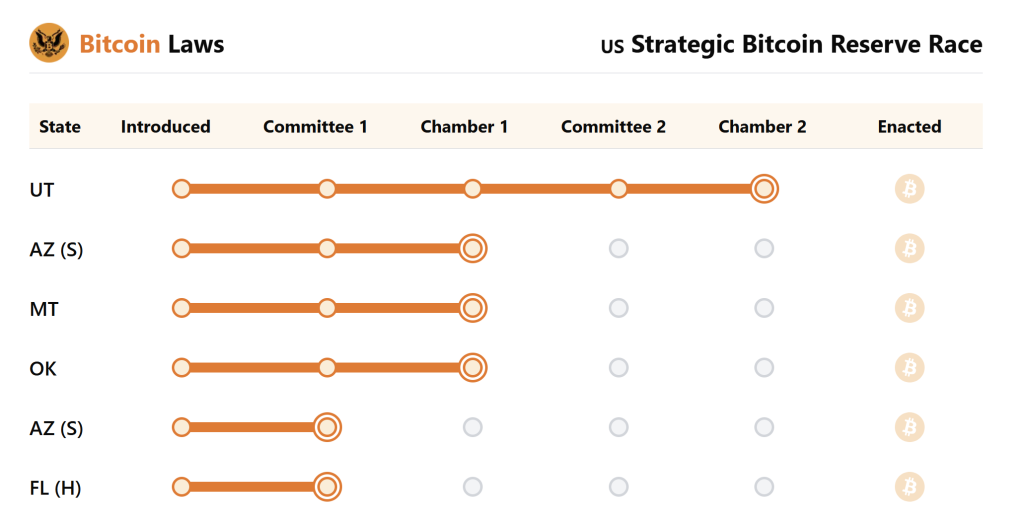The race to establish Bitcoin as a state-level strategic reserve asset has taken a decisive step forward in the Beehive State. On February 20, House Bill 230 (HB230), also known as the “Blockchain and Digital Innovation Amendments,” passed the Senate Revenue and Taxation Committee in a 4-2-1 vote. The legislation, which already cleared the state House of Representatives, now proceeds to a second and third reading in the full Senate. Should it succeed in those readings and receive a final Senate vote of approval, the bill would only require Governor Spencer Cox’s signature to become law.
Utah Takes The Lead For A Strategic Bitcoin Reserve
At its core, HB230 authorizes the Utah state treasurer to invest up to 5% of certain public reserve funds in digital assets. Initially, some public discussions suggested a 10% cap, but the current version sets the ceiling at 5%—not as a target but as the upper limit. According to several legislative references, the specified reserve funds total roughly $1.4 billion, meaning a maximum of $70 million could be invested in digital assets such as Bitcoin.
The bill further restricts which cryptocurrencies can be considered. Specifically, digital assets must maintain a minimum average market capitalization of $500 billion over the preceding 12 months. Currently, Bitcoin is the only cryptocurrency that meets this threshold. Despite this focus, the bill also authorizes the treasurer to engage in crypto staking—an approach that does not apply directly to Bitcoin but could potentially open the door to other high-cap proof-of-stake cryptocurrencies if they surpass the $500 billion cap requirement in the future (similar to Texas).
During the Senate Revenue and Taxation Committee hearing, Rep. Jordan Teuscher, the bill’s primary sponsor, detailed the legislation’s objectives and approach: “HB230 is the latest iteration out of the Blockchain Digital Innovation Task Force. [It ensures] how digital assets and blockchain is protected and how the government would treat that and ensuring that there aren’t undue prohibitions or restrictions on blockchain. […] the bill also allows for some very limited investments, initial investments by the state treasurer in digital assets and some requirements around how that’s kept in custody.”
Rep. Teuscher clarified that eligible digital assets must exceed a $500 billion market capitalization, a criterion that only BTC currently satisfies: “That includes that those qualifying digital assets are only those with a market cap of over $500 billion […] and limiting the funds that could be invested in that into just the four funds […], which are some of the rainy day funds in the state.”
According to Bitcoin Laws on X, “UT takes a commanding lead in the Bitcoin Reserve Race. Today HB230 passed the Senate Revenue and Taxation Committee. The Senate will now hold a 2nd reading. Then a 3rd reading, then a final vote. Then the final step is the Governor signing into law.”

According to BitcoinLaws.io, 26 US states currently have an active Strategic Bitcoin Reserve bill. In three US states—Wyoming, Pennsylvania, and North Dakota—the Strategic Bitcoin Reserve bill has already failed.
At press time, BTC traded at $98,915.

Featured image created with DALL.E, chart from TradingView.com



